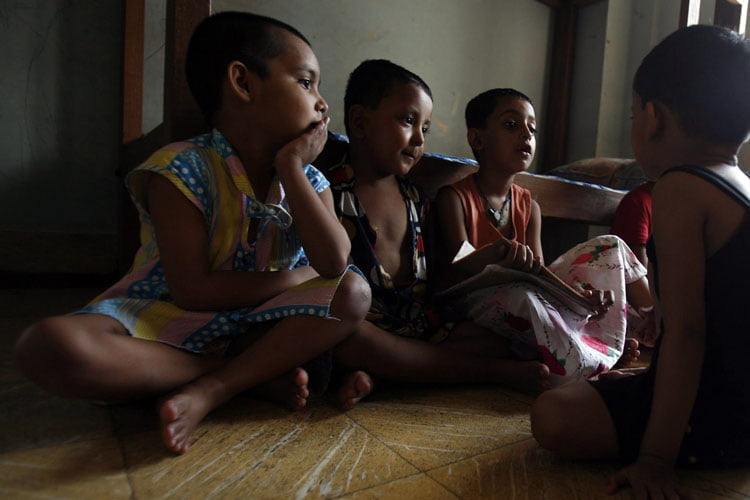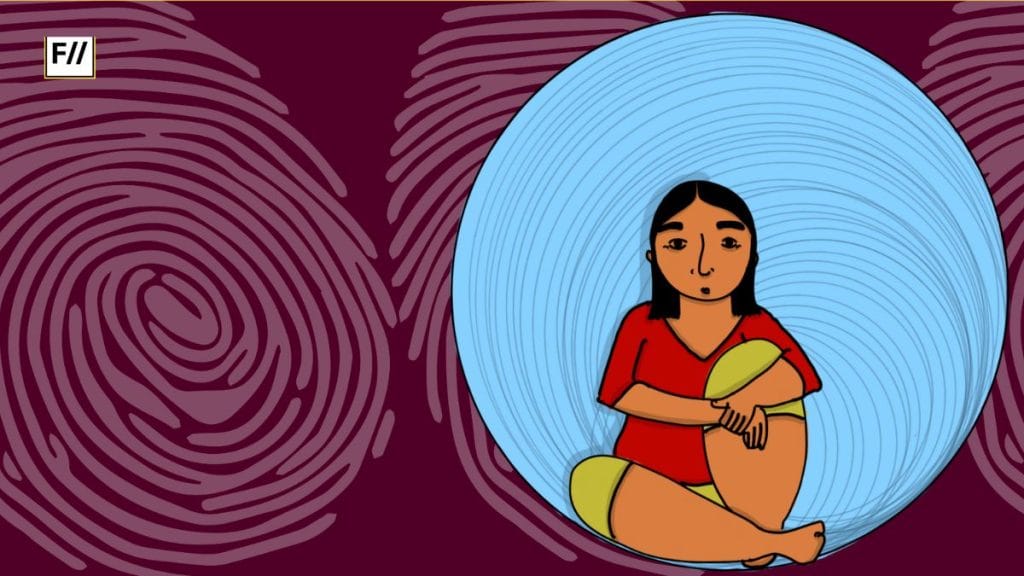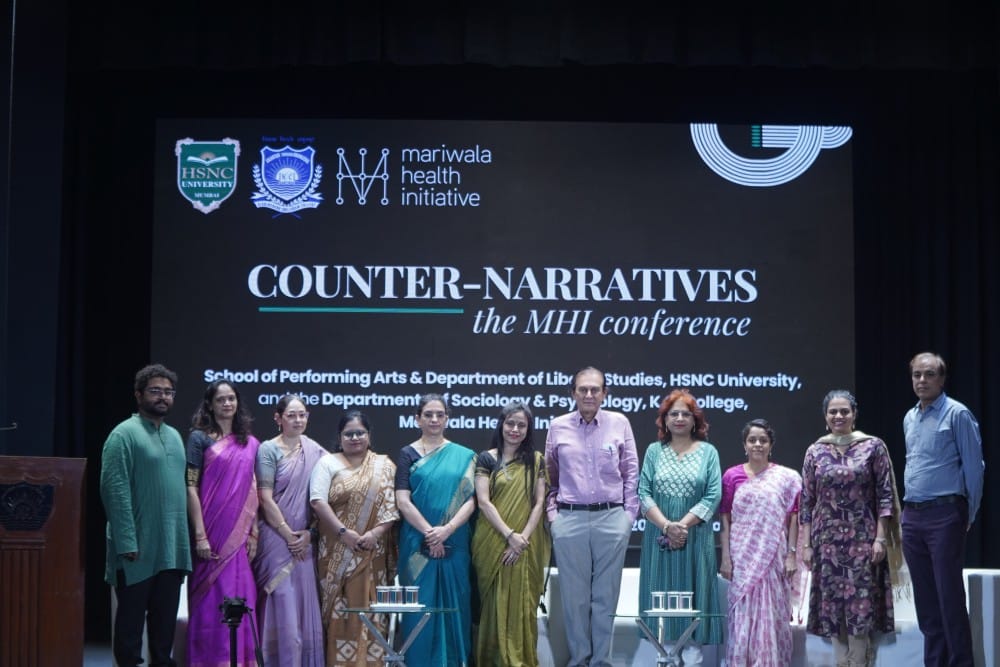Posted by Kripi Malviya
A survey conducted by Ministry of Women and Child Development in 2014 in association with the United Nations Children’s Fund (Unicef) and a few Indian NGOs working for child’s rights; found that more than 53% of children in India are subjected to sexual abuse. Most don’t report it. That is every second child in India. We are continually and persistently silent about it. We are not upset about it enough or enraged by it as a society; which can only lead to the conclusion that we normalise it. In order to have conversations and provide care for abuse victims; we have to start with accepting how prevalent it is in India. The WHO defines child sexual abuse as,
The involvement of a child in sexual activity that he or she does not fully comprehend, is unable to give informed consent to, or for which the child is not developmentally prepared and cannot give consent, or that violates the laws or social taboos of society. Child sexual abuse is evidenced by this activity between a child and an adult or another child who by age or development is in a relationship of responsibility, trust or power, the activity being intended to gratify or satisfy the needs of the other person.
Childhood sexual abuse often has a huge impact in an individual’s mental health and has far reaching consequences. The mental health conditions most associated with childhood sexual abuse are post traumatic stress disorders, eating disorders, depression, and substance abuse disorders.It is absolutely essential to acknowledge that the effects of sexual abuse don’t just go away with age. We need to understand that every one copes with childhood abuse in a different way; which includes promiscuity, sexual aversion, repetition of abuse etc. The most pervasive consequence of childhood abuse, especially sexual abuse, is the breakdown of the child’s perception of trust and safety.
This disintegration of security is often carried unchallenged into adult life; showing through in relationships with the self and the world. Since an overwhelmingly high percentage of sexual abuse is carried out by someone in a position of trust: the harm is insidious and generational in nature, plus the silence is louder. The shame associated with the abuse in most cases seems to overwhelm the victim from taking other choices; like revealing the abuse or asking for help. This pattern of taking responsibility and blame for the abuse on the part of the perpetrator and the internalised trauma and can be unfortunately repeated in the workings of future relationships with friends, partners, authority figures and lead to revictimization. Even after the abuse has stopped this often goes on to manifest itself in self hatred, low self esteem and such behaviours as self harming and addictions etc.
One of the reasons that compelled me into the field of mental health was my interest for dissociative disorders; which I went on to extensively read and research about during my entire course of study. Dissociation is the experience wherein our mind “separates” itself from painful events to protect itself. People may have a hard time remembering what happened, feel like the world around them isn’t real or feel like they aren’t connected to your body. It’s a common reaction to pain and fear. The intention behind being drawn to dissociative disorders was its unflinching relationship to childhood abuse. The link between sexual abuse and dissociative disorders has long been established in both North America and Europe though organisations like APA (American Psychiatric Association) and ISSTD (International Society for the Study for Trauma and Dissociation).
In fact my masters thesis found that 33% of Indian students between the age of 18 to 21 were found to have dissociative experiences – that is arguably the highest the world. A persistent and often ignored result of long term childhood sexual abuse, especially by a member of the family or a close and trusted adult, is a phenomenon which is called ‘attachment to the perpetrator’ (Colin Ross.) This is the result of having a dual relationship of love and hate with the perpetrator. It gives conflicting messages to the child that they are meant to love you; yet they are hurting you. A child than naturally associates loving relationships with a degree of hurt and harm. Another area that is hardly dealt with is how dangerous the self loathing is for the child; which comes from internalised messages like: ‘its our little secret’, ‘you were enjoying it’, ‘I do it because i love you’ etc.
Acknowledging and identifying the role society plays in hindering healing and growth such as the message of ‘that was so long ago;’ is as harmful as ‘are you sure it really happened’. Shame is by far the single most important feeling that dictates the lives of people with past experiences of sexual abuse; it often overshadows the healthy and justifiable anger that the person should be experiencing. Since shame thrives in secrecy: the more the person is unable to talk about their abuse, the more aspect of their lives are affected by it. Societal, institutional and political callousness with people who experience abuse has long standing consequences. When people who have undergone abuse finally do speak up they are often either shut down, ignored or further traumatised by institutions that are meant to protect them: which further reinforces the idea that their pain doesn’t matter and that their abuse was just bad luck or worse – that their abuse is what they deserved. Denial of the severity concerning the impact of abuse and that of generational abuse, is one of the biggest hindrances to people seeking help.
The silence around childhood sexual abuse is also related to our shame around sex and general mistreatment of children. Therefore In order to create spaces where children and people can open up about their sexual abuse and be heard; we as adults in all our different roles of responsibility need to demystify sex and make a big deal about the effect of abuse on children; plus be far more attentive to the subtle changes in children’s behaviour which may indicate abuse, then not be afraid to bring in a specialist to address these issues. We need to be willing to talk about how people in positions of trust and authority such as teachers, relatives, religious leaders, doctors, leaders and parents, can be the most destructive force in their children’s lives; not only in those situations where abuse is perpetuated by a person entrusted with the care of the child (30 to 50 % of children are abused by persons known to them) but also where these incidences are kept silent. The earlier the child gets the opportunity to counter those harmful experiences with safety and security – the lesser the chance they will carry it silently throughout their lives.
Kripi Malviya is psychotherapist and poet who loves living on islands. She is the founder and co-creator of TATVA which is an emotional wellness organisation based in Goa, India (more here).
Featured Image Credit: The picture has been used for representational purpose only | News18.com
About the author(s)
Guest Writers are writers who occasionally write on FII.




